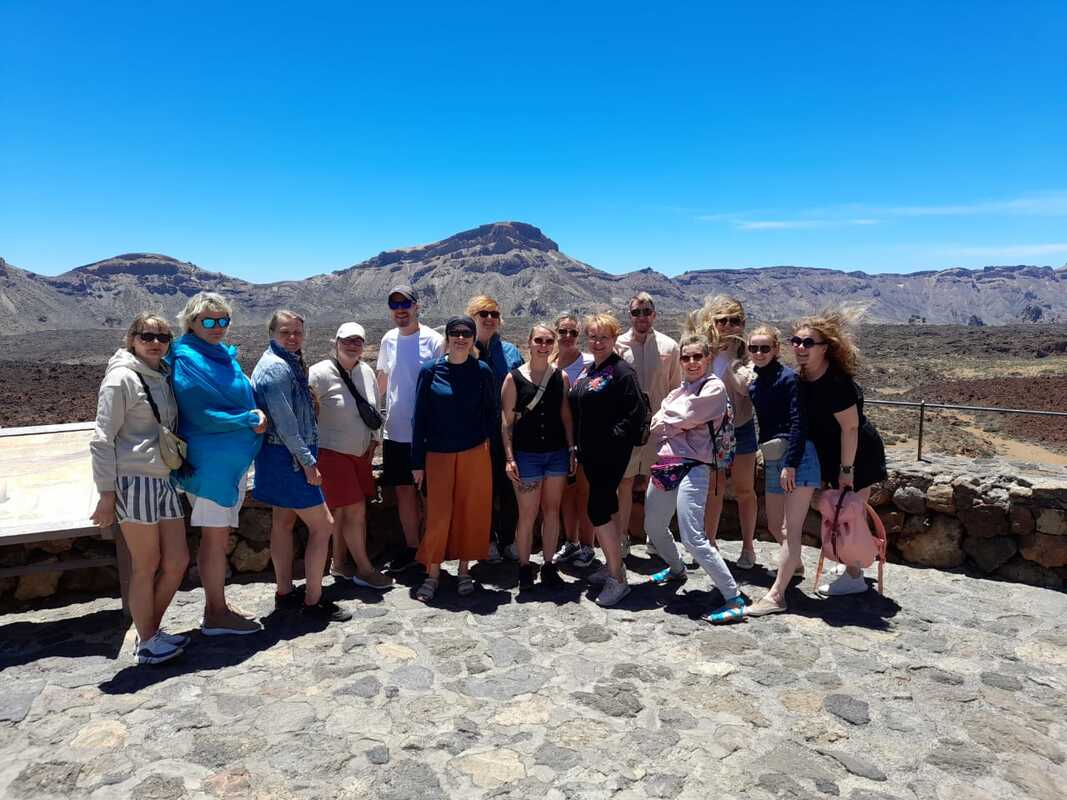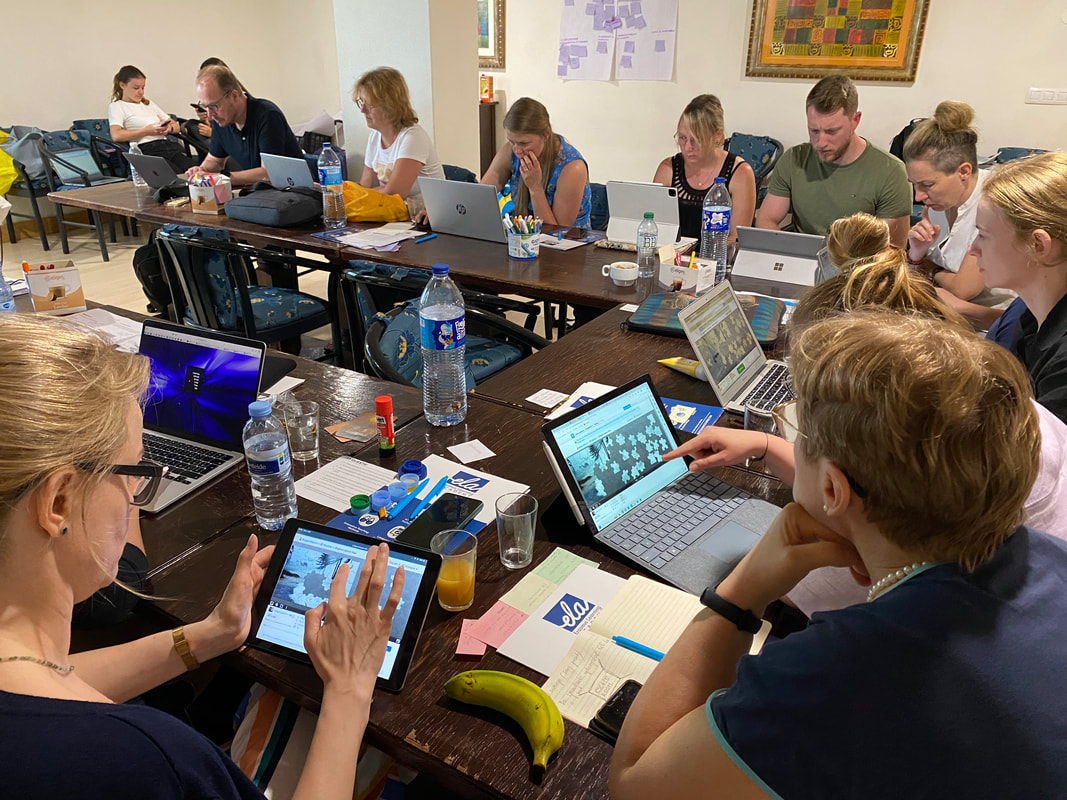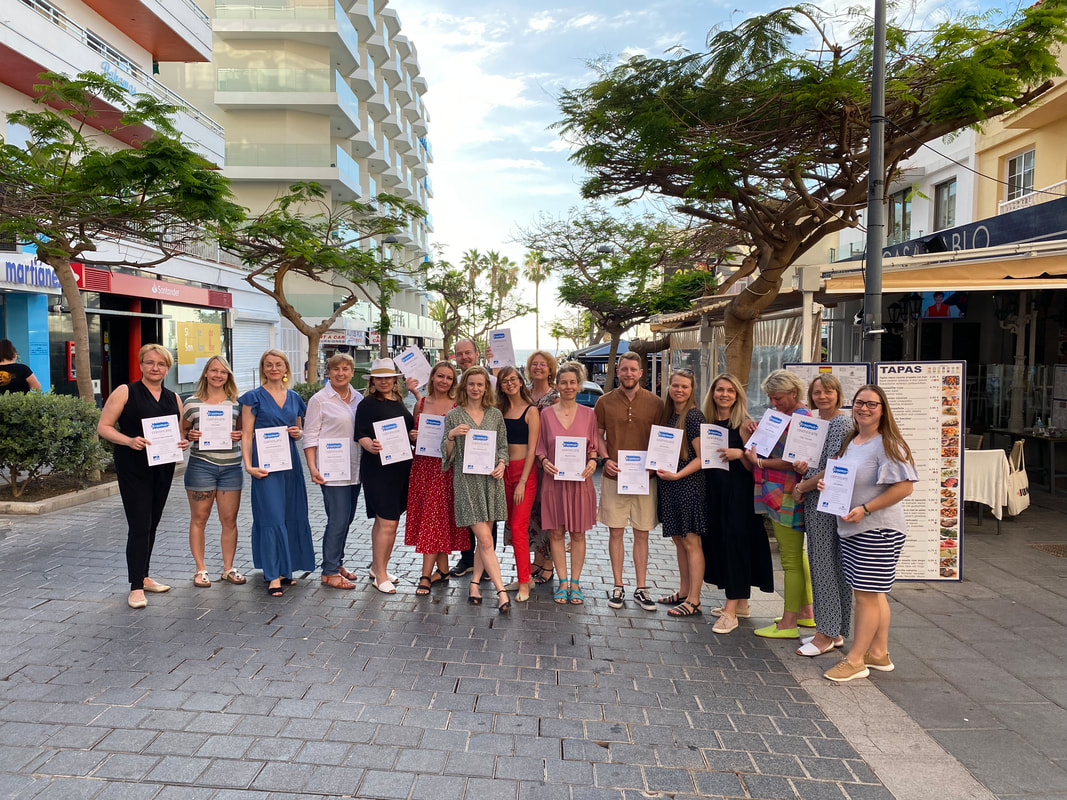 Game-based learning and gamification are innovative approaches that have gained popularity in recent years in the field of education. They involve the use of game mechanics and game design principles to create interactive and engaging learning experiences that promote learning and retention. By integrating game elements into educational materials, educators can capture students' attention, motivate them, and facilitate a more active and enjoyable learning process. This can lead to improved learning outcomes and better engagement with the subject matter. In this way, game-based learning and gamification have the potential to transform education and make learning a more dynamic and rewarding experience for students of all ages. The new edition of the course “Discover the power of Game Based Learning and Gamification in education” took place in Tenerife from 30/04/2023 to 06/05/2023. The participants came from all across Europe, with Ivana from myJUMP.sk in Slovakia, Malgorzata, Barbara, Małgorzata, Agnieszka, Helena, Katarzyna from Ośrodek Wspierania Organizacji Pozarządowych in Poland, Eyleen and Fabian Schmitt from TGBBZ1 Saarbrücken in Germany, Nicole Fischer from Université de la Réunion in France, Sarma, Valda, Aija, Anna and Gunta from Pauls Stradins Clinical University Hospital in Latvia, Ilkka from Live-säätiö sr in Finland. Their training week was constructed like a game, following a sequence of levels from the very beginning. Games require active participation from players, which can help to solidify knowledge and skills in a more memorable way than passive learning methods such as lectures. Game-based learning and gamification are innovative approaches that have revolutionized the traditional classroom experience. One of the key benefits of using games and gamified activities in education is their ability to encourage active learning. Students take an active role in their own learning process by participating in games and gamified activities, which helps them to retain information and develop important skills like problem-solving and critical thinking. Another advantage of game-based learning and gamification is that they can be personalized to meet the needs of individual learners. By catering to different learning styles and abilities, games and gamified activities can provide a more effective and engaging learning experience for students. Games and gamification also provide immediate feedback, allowing learners to see the consequences of their decisions in real-time. This helps students to understand the material more deeply and learn from their mistakes. Furthermore, games and gamification can promote collaboration and teamwork among learners. By working together, students can develop communication skills, build relationships, and learn from one another. Finally, game-based learning and gamification make learning fun. When students enjoy the learning process, they are more likely to be motivated and engaged in the subject matter. Overall, game-based learning and gamification offer a unique and effective way to enhance the learning experience and help students achieve better outcomes. Overall, Game Based learning and gamification can make learning more engaging, fun and effective for students. By incorporating these strategies into their teaching, educators can help students to develop the skills and knowledge they need to succeed in the modern world. Discover more about this course here. |
Welcome to the ELA Blog. Here you will find articles and photos of our courses and have a look at the topics addressed during the week in Bologna, Palermo and Tenerife. You will also have the chance to take a peek at our projects and check out what we have been up to.
Archives
July 2024
Categories |
-
Course catalogue
- 2023-2024 course catalogue
- Soft Skills >
- ICT and New Technologies >
- Inclusion and Diversity >
-
Innovative Teaching Methods
>
- Innovative teaching methods discovery
- Non-formal education teaching methods
- Dual education and work-based learning
- Teaching leadership and entrepreneurship
- Project based learning
- Game based learning and gamification
- Green skills
- Outdoor education
- Outdoor education trekking edition
- Promoting creativity and critical thinking
- Languages and EU projects >
- Preschool >
- Erasmus Plus KA1
- What we do
- About us
- Locations
- Blog
- Contact us
 English
English български
български Čeština
Čeština Español
Español Français
Français ελληνικά
ελληνικά Italiano
Italiano Polski
Polski Português
Português Română
Română


 RSS Feed
RSS Feed









